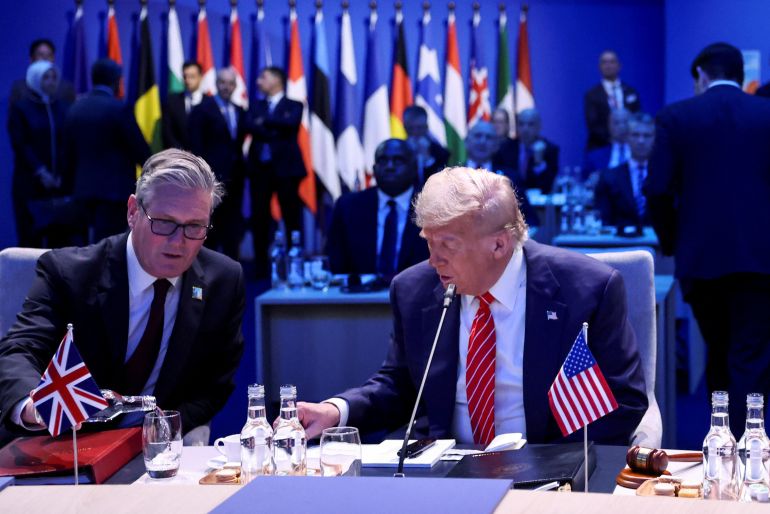NATO allies have come to an agreement to significantly increase military spending while reaffirming their “ironclad commitment” to collective defense.
By 2035, the 32-member bloc’s leaders pledged to give the country’s defense and related sectors up to 5% of their GDP, calling the action a “quantum leap” in collective security.
A summit communication released on Wednesday in The Hague contained the new pledge. Members were required to “invest 5% of GDP annually in core defence needs as well as defense- and security-related spending.”
In order to evaluate progress and reevaluate the threat posed by Russia, the commitment includes a convenient review point in 2029, which will be scheduled for after the upcoming US presidential election.
Although it glossed over glaring differences within the alliance, NATO Secretary General Mark Rutte praised the agreement as being “transformational,” echoing this sentiment by several leaders.
Donald Trump, the US president, acknowledged the change as evidence of his repeated push for a higher NATO defense spending commitment.
No one at the summit really believed it to be possible, Trump said. They responded, “You did it, sir,” You succeeded. I don’t know if I did it, but I believe I did.
British Prime Minister Keir Starmer stated on Wednesday that the country plans to spend at least 4.1 percent of its budget on defense and security by 2027, a move that will likely win Trump over.
divisions over spending
Not everyone is in agreement. Spain has already stated that it is unable to meet its 5-percentage goal. Following Russia’s massive invasion of Ukraine in 2022, Prime Minister Pedro Sanchez resolutely resisted his government’s current 2 percent threshold.
Sanchez asserted that Spain has the ability to implement NATO’s defense plans for 2 percent of GDP. This summit ensures both the welfare of our citizens and our country’s security.
Spain spends the least money on defense for NATO. It spent 1.24 percent of its GDP in 2024, and it did not meet the 2 percent goal among the nine member nations.
Trump quickly attacked Madrid’s position and threatened retaliation using economic means.
They want to remain at 2%. The US president called it “worse” and said, “I think it’s terrible. They will end up paying double what we’re negotiating with Spain.
The objections also came from Slovakia and Belgium. Bratislava claimed it had the authority to decide its own military expenditures, while Brussels warned that the timeline was unrealistic.
Steep spending is necessary.
Despite the opposition, the declaration established new targets: 3.5% for NATO’s “core defence spending,” and a further 1.5% for broader security measures, including upgrades to roads and ports, cyber defense, and capabilities for emergency response.
The deal, according to Norwegian Prime Minister Jonas Gahr Store, was unprecedented.
He claimed that “we struggled for years to get past 2%.” We’re talking about 3.5%, which is required to develop the capabilities we require right now.
The demands are high for money. European nations are being urged to bear more of the military burden as the US shifts its strategic focus to Middle East and Indo-Pacific.
Source: Aljazeera

Leave a Reply